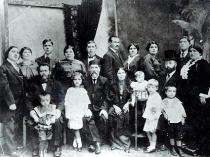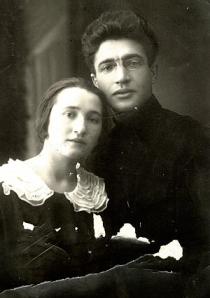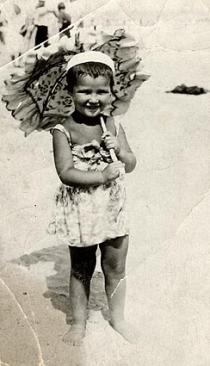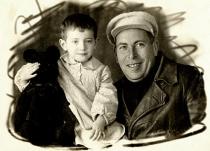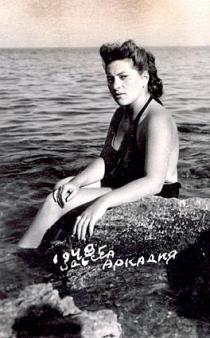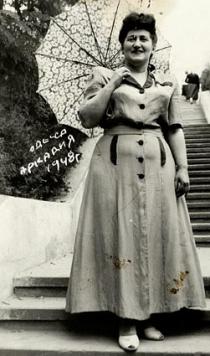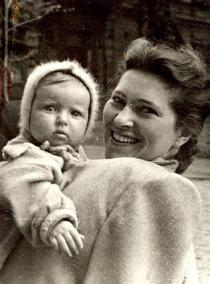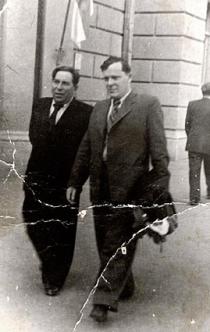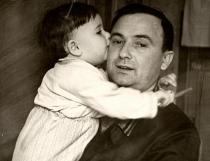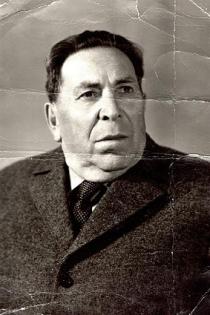I, Elena Orlikova. I was born on in Kiev 12 March 1926.
I had a very happy childhood. I had young and happy parents. My father loved me very much. He also loved my mother very much. He always tried to make his family happy.
I went to an ordinary Russian school. I had no problems with my studies. I liked mathematics and physics. My favorite teacher was Elena Ivanovna Kolotushko, a Ukrainian. She was a teacher of Russian language and literature. Now I understand that there were quite a few Jews in our class and at school: Lyusia Epshtein, Ania Greenberg, Raya Zaltzberg - they were all my friends. However, I had Russian and Ukrainian friends, too: Tania Ivanova, Tolia Morkachov and other children. We became young Octobrists , then pioneers: we were Soviet schoolchildren. We didn't feel our Jewish identity at school. Nobody paid any attention to such things.
We didn't feel the approach of the war. On 22 June 1941 my friends and I were supposed to go to the theater. Of course, it was out of the question on this day. My parents did understand how threatening it was that German troops were so close to Kiev. I believe my parents heard some rumors about their ruthless brutality in Western Europe and wanted to take us out of Kiev. My father had a close friend Lubman. He worked at the Public Prosecutor's Office of Ukraine. He was responsible for the financial sector. He obtained a permit to leave Kiev. One couldn't leave Kiev on their own these days. This could have been interpreted as spreading panic and could be subject to punishment. Another acquaintance got a truck somewhere. There were so many people on this truck that we had to stand a long while, but we left Kiev.
In 1944 I transferred from Moscow Law Institute to the Law department at Kiev University. I was a first year student. At the beginning there were only girl students. But then gradually young men were returning from the army, those that started before the war and finished one or two years. One of them was Boris Veniaminovich Vilenskiy, born in 1923, a Jew. He returned in the rank of captain and was a very gifted and talented man. He was wounded and shell-shocked during the war. He started courting me and we fell in love with one another.
We got married in 1948 upon our graduation. We had a wedding party at home. We had many guests: our relatives and friends. It was a nice party, very nice. It was not a Jewish wedding, but still, the main dish on the table was stuffed fish. My mother was great at making it. My father loved Jewish sweet-&-sour stew and it was often served in our family.
We lived with our parents in the communal apartment. I went to work as a legal adviser to a small company. My father helped me to get this job. Boris continued his post-graduate studies. He finished studying but he couldn't find a job

